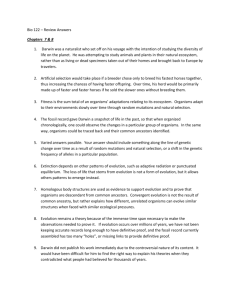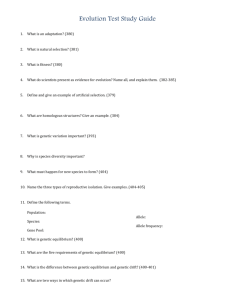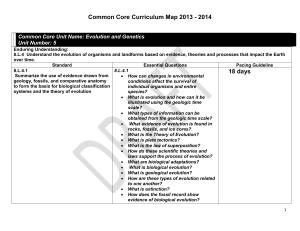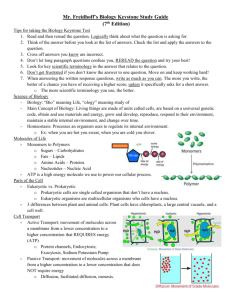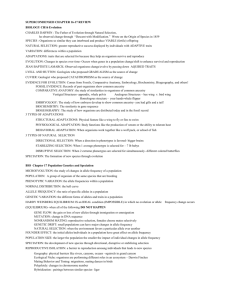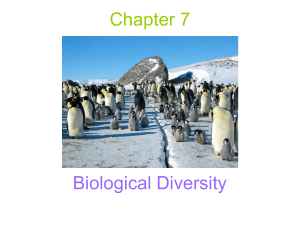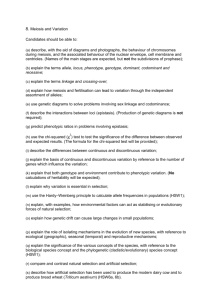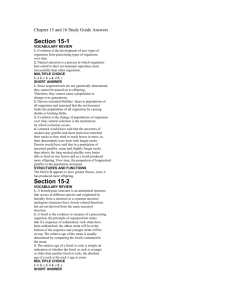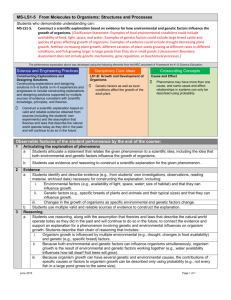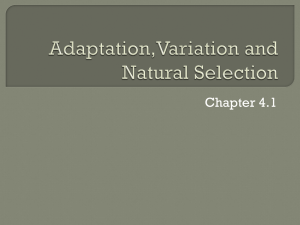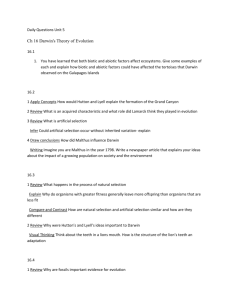Theory of Evolution
advertisement
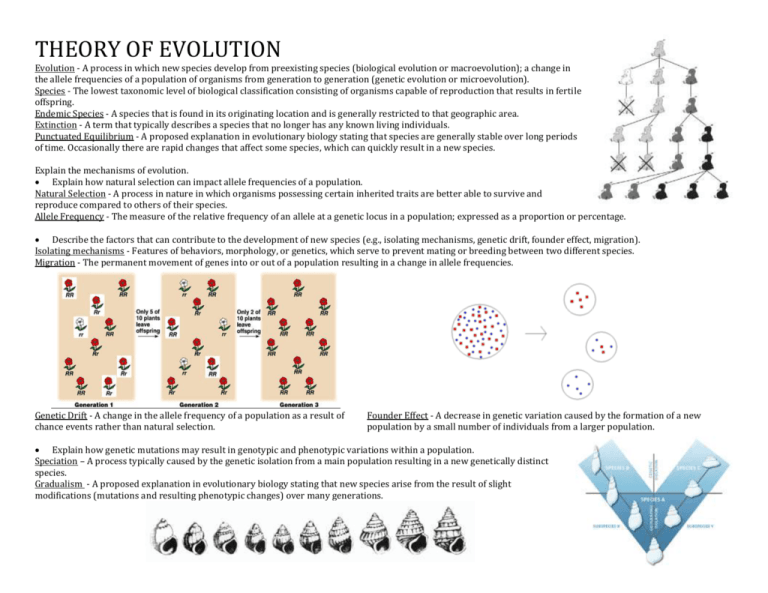
THEORY OF EVOLUTION Evolution - A process in which new species develop from preexisting species (biological evolution or macroevolution); a change in the allele frequencies of a population of organisms from generation to generation (genetic evolution or microevolution). Species - The lowest taxonomic level of biological classification consisting of organisms capable of reproduction that results in fertile offspring. Endemic Species - A species that is found in its originating location and is generally restricted to that geographic area. Extinction - A term that typically describes a species that no longer has any known living individuals. Punctuated Equilibrium - A proposed explanation in evolutionary biology stating that species are generally stable over long periods of time. Occasionally there are rapid changes that affect some species, which can quickly result in a new species. Explain the mechanisms of evolution. Explain how natural selection can impact allele frequencies of a population. Natural Selection - A process in nature in which organisms possessing certain inherited traits are better able to survive and reproduce compared to others of their species. Allele Frequency - The measure of the relative frequency of an allele at a genetic locus in a population; expressed as a proportion or percentage. Describe the factors that can contribute to the development of new species (e.g., isolating mechanisms, genetic drift, founder effect, migration). Isolating mechanisms - Features of behaviors, morphology, or genetics, which serve to prevent mating or breeding between two different species. Migration - The permanent movement of genes into or out of a population resulting in a change in allele frequencies. Genetic Drift - A change in the allele frequency of a population as a result of chance events rather than natural selection. Founder Effect - A decrease in genetic variation caused by the formation of a new population by a small number of individuals from a larger population. Explain how genetic mutations may result in genotypic and phenotypic variations within a population. Speciation – A process typically caused by the genetic isolation from a main population resulting in a new genetically distinct species. Gradualism - A proposed explanation in evolutionary biology stating that new species arise from the result of slight modifications (mutations and resulting phenotypic changes) over many generations. Analyze the sources of evidence for biological evolution. Interpret evidence supporting the theory of evolution (i.e., fossil, anatomical, physiological, embryological, biochemical, and universal genetic code). Fossils - The preserved remains or traces of organisms that once lived on Earth. Homologous Structure - A physical characteristic in different organisms that is similar because it was inherited from a common ancestor. Analogous Structure - A physical structure, present in multiple species, that is similar in function but different in form and inheritance. Vestigial Structure - A physical characteristic in organisms that appears to have lost its original function as a species has changed over time. Embryology - The branch of zoology studying the early development of living things. Biochemical – All organisms are made of cells, which are composed of carbohydrates, proteins, lipids and nucleic acids. Universal Genetic Code – All organisms assemble proteins using protein synthesis, thus interpreting the DNA code with the same amino acids. Apply scientific thinking, processes, tools, and technologies in the study of the theory of evolution. Distinguish between the scientific terms: hypothesis, inference, law, theory, principle, fact, and observation. Hypothesis - A proposed, scientifically testable explanation for an observed phenomenon. Ex. A significant difference in the shape of beaks can be observed in finches that live on the eastern compared to the western side of the island. Inference - In logic, derivation of conclusions from given information or premises by any acceptable form of reasoning. Includes deductive, inductive, probability and statistical reasoning. Ex. When information is unavailable or missing, it is inferred using reasoning. Law - A law that generalizes a body of observations. At the time it is made, no exceptions have been found to a law. It explains things but does not describe them; serves as the basis of scientific principles. Ex. Law of Independent Assortment and the Law of Segregation for genetics Theory - An explanation of observable phenomena based on available empirical data and guided by a system of logic that includes scientific laws; provides a system of assumptions, accepted principles, and rules of procedure devised to analyze, predict, or otherwise explain the nature or behavior of a specific set of phenomena. Ex. Theory of Evolution Principle - A concept based on scientific laws and axioms (rules assumed to be present, true, and valid) where general agreement is present. Ex. The Hardy-Weinberg Equilibrium Principle describes the unchanging frequency of alleles and genotypes in a stable, idealized population Fact - A truth known by actual experience or observation Ex. Galapagos finches have differently shaped beaks. Observation - An act or instance of viewing or noting a fact or occurrence for some scientific or other special purpose. Ex. Different beaks are used to consume different types of food.
